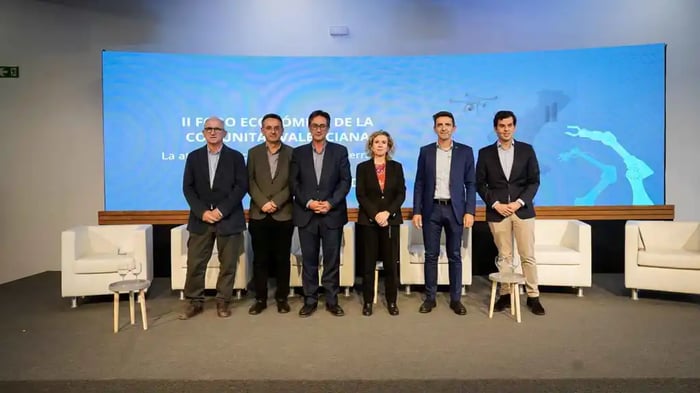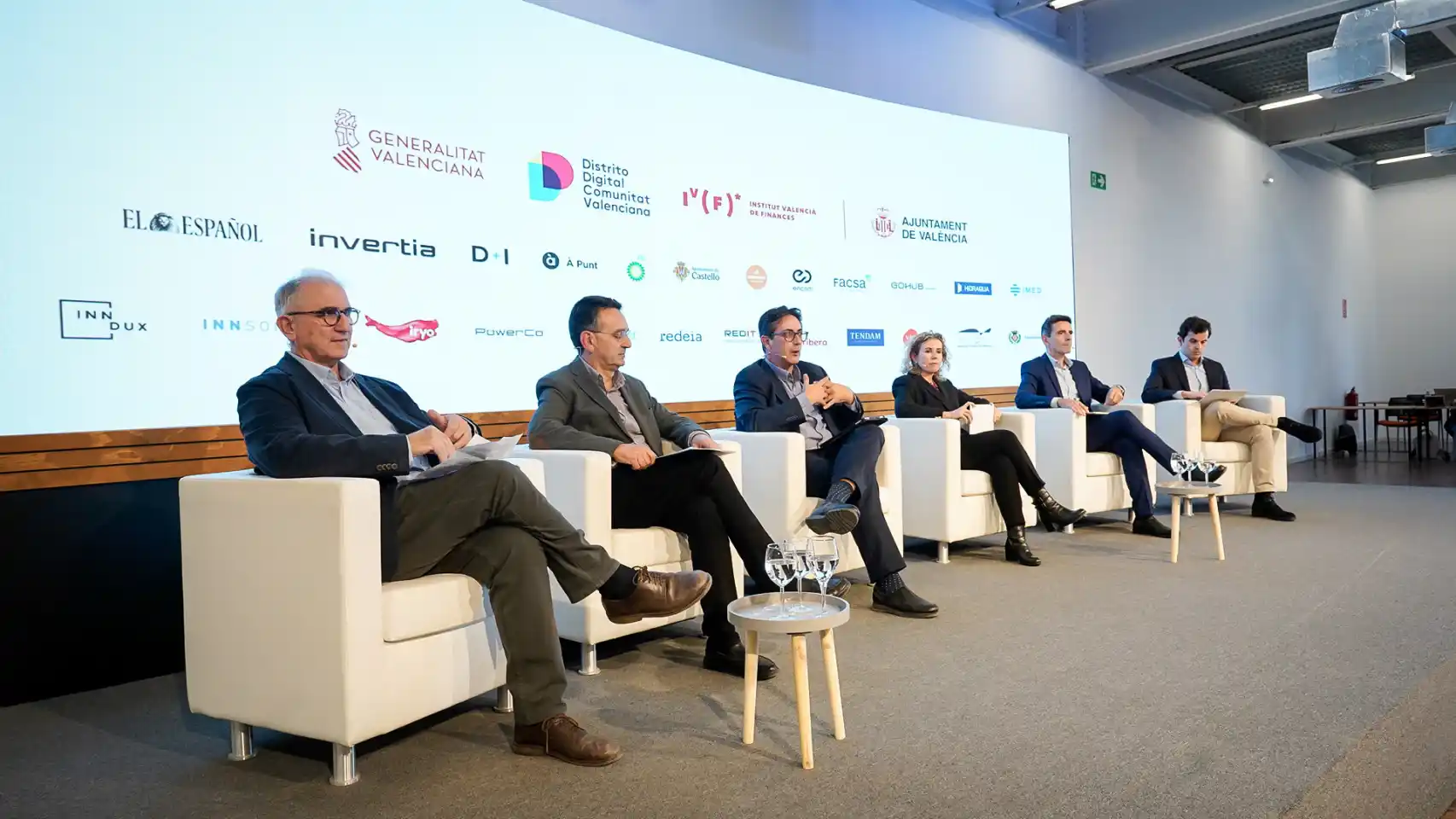The director of the University of Valencia Science Park (PCUV), Pedro Carrasco, participates in the II Economic Forum of the Valencian Community 'The economic attraction of the Mediterranean', organized by El Español, Invertia and D+I, where several experts from leading Valencian universities point out the importance of digitization in the training of students, but also in knowledge transfer and research
The director of the University of Valencia Science Park (PCUV), during his speech, emphasized the problems that currently exist in Spain with the transfer of knowledge. In this sense, Pedro Carrasco emphasized that "scientists have never been required to transfer, only to write publications. And many of them already transfer, but they do it outside our country, where it is easier. And sometimes transfer is confused with entrepreneurship, in many occasions it is in innovations towards the company."
Carrasco was joined at 'The university, facing technological change' round table by Juan Blaya, director of the Clinical Department of the Faculty of Dentistry of the European University of Valencia; Salvador Coll, vice-rector of Innovation and Transfer of the Polytechnic University of Valencia (UPV); David Cabedo, vice-rector of Innovation, Transfer and Scientific Dissemination of the Jaume I University (UJI); and Consuelo García Tamarit, vice-rector of Teaching and Educational Innovation of the International University of Valencia (VIU).

Juan Blaya (Universidad Europea de Valencia), Salvador Coll, (Universidad Politécnica de Valencia), Pedro Carrasco (Parque Científico Universitat de València), David Cabedo (Universidad Jaume I) and Consuelo García Tamarit (Universidad Internacional de Valencia), together with Rafa Navarro (editor of D+I - EL ESPAÑOL).
"The scientist has never been required to transfer, only to write publications. And many of them already transfer, but they do it outside our country, where it is easier. And sometimes transfer is confused with entrepreneurship, in many occasions it happens in innovations towards the company", Pedro Carrasco, director of the PCUV
Carrasco also criticized the fact that the regulations do not facilitate the transfer. "The Public Sector Incompatibilities Law does not allow a scientist to have more than 10% of the company he or she creates. These obstacles, which come from the regulations, should be addressed by the Administration," said the director of the PCUV.
Research, teaching and management
Juan Blaya explained that "the fundamental pillars of any university are research, teaching and management. The bets for digitization go in these directions". In this regard, Blaya pointed out that the European University of Valencia, in the field of teaching, is using "virtual reality simulators and haptic simulators that work on real cases so that students can practice before facing the patient".
Thus, the Vice Rector for Innovation and Transfer of the Polytechnic University of Valencia (UPV), detailed its "comprehensive vision applied digital transformation, green transition or any other pole of innovation that leads to cities". To this end, this university placed greater emphasis on specialized training and connection with the company (1,500 job offers managed each year), generating more impact with its R&D in the environment (especially around microelectronics, cybersecurity or AI). In the case of David Cabedo, he explained that "from the beginning we have been committed to digitalization. In management, 85% of the processes are digitized. In teaching we are also committed to technology, but it is in the capabilities of our research groups where we are strongest".
"We need to incorporate companies and organizations into education research and training projects. Universities may be in our bubble, but companies are too. That is why we want to join our paths and that is the effort we are making", Consuelo García Tamarit, Vice Rector for Teaching and Educational Innovation at Valencia International University (VIU)
Finally, the Vice Rector for Teaching and Educational Innovation of the International University of Valencia (VIU), stressed that her university "is already a digital native, for us it is something we live with constantly. But our students are not, the average age is 32, people who want to improve their employability and therefore come to the university online, in that social function that we play." García Tamarit proposed moving from the idea "of the virtual campus to a virtual learning ecosystem, involving many more agents in the learning process with students. We need to incorporate companies and organizations in educational research and training projects. Universities may be in our own bubble, but companies are too. That's why we want to join our paths and that's the effort we are making."


